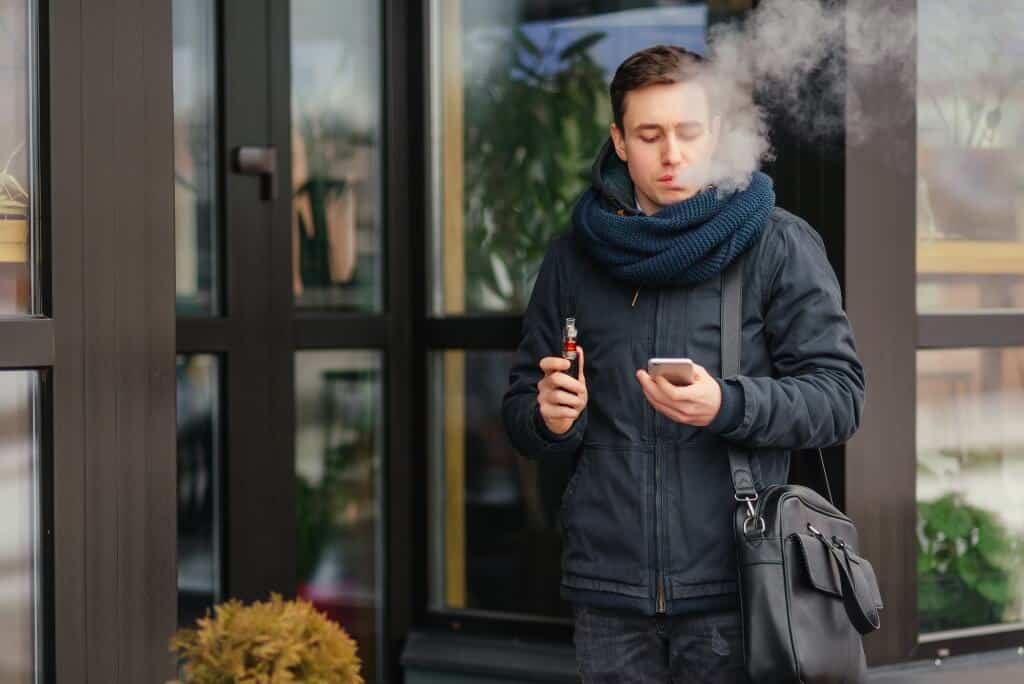Research shows that around 1 in 7 people between the age of 18-24 who never regularly smoked are now using e-cigarettes. This marks a significant shift in vaping trends, with health experts calling for stricter regulations to curb the growing appeal of vapes to young people, warning that many may be risking their health unnecessarily.
While some believe that vaping is a safer alternative to smoking, health experts stress that those who would never have smoked in the first place are exposing themselves to unnecessary risks. That is why Midland Health conducted a study to uncover the number of vape shops within walking distance of secondary schools maintained by Birmingham City Council.
Key Findings
Of the 98 vape shops identified, 72% were within 1.5 kilometres of a school. What’s more, a concerning 12% of these stores are clustered in Birmingham’s B11 and B12 postcodes — areas that fall within the second-most deprived decile according to the Indices of Deprivation (IMD).
These findings highlight a concerning trend of vape shops clustered in areas where vulnerable communities are disproportionately affected by the presence of these stores.
What’s more, young people aged 10-19 make up nearly 15% of Birmingham’s population — approximately 170,000 individuals. This means that many are vulnerable, with vape shops just a stone’s throw away from school gates.
Dr Prasad Nagakumar, a Paediatric Respiratory Consultant at Midland Health, voiced serious concerns about the accessibility of vaping products to young people:
“It is deeply concerning to see the rising trend of young people taking up vaping. Many young people who never intended to smoke have become addicted to vaping, mistakenly believing it to be a harmless habit. However, vaping is not harmless; it exposes users to toxins, and the long-term health consequences are still being investigated.”
Dr Nagakumar explained that the key ingredient in most vapes is nicotine — a highly addictive substance that poses severe risks to young people’s health. Nicotine can disrupt the development of young brains, impair lung function, and reduce blood vessel efficiency.
He also raised concerns about the marketing tactics used by vape brands:
“The easy availability of vapes, especially those marketed with appealing flavours and bright colours, poses a serious threat to the health and well-being of our youth.”
In light of the findings, Midland Health is urging the government to introduce stricter regulations on the sale and marketing of vapes. One of the proposed measures is to ban vape shops from operating near schools, similar to the restrictions on fast-food outlets and betting shops.
Dr Prasad Nagakumar emphasised the need for decisive action:
“The government needs to implement stronger measures to regulate the sale and marketing of vapes to prevent this worrying trend from escalating further.”
Tighter regulations are essential to protect young people from potential health issues linked to vaping. Without government intervention, experts fear that the current trend could escalate, with more young people developing vaping-related addictions.
Equally, parents, schools, and community leaders need to raise awareness of the dangers posed by vaping to young people.
Midland Health also stresses that urgent awareness is needed to protect young people and children with asthma from the severe risks that vaping poses to their health. After all, vaping can worsen lung inflammation, trigger asthma attacks and even increase long-term respiratory complications.
The Hidden Effects of Vaping
Mr Amit Parmar, ENT Consultant at Midland Health added: “We are essentially conducting a massive, uncontrolled experiment on a generation, and it will take decades before we fully comprehend the potential carcinogenic effects of vaping.”
“Beyond the immediate irritation, vaping can significantly impact nasal health, leading to congestion, runny nose, and chronic sinus issues. In some cases, vaping can lead to alterations in the natural cleaning mechanisms of the nose and heightened inflammatory responses, worsening pre-existing conditions like rhinitis and sinusitis.”
“The delicate tissues of the throat are also vulnerable, with laryngeal irritation causing painful sore throats and hoarseness. Plus, the ototoxic potential of vaping substances raises serious concerns about its impact on hearing health. Tinnitus and hearing loss, already prevalent issues, may be exacerbated by prolonged vaping.”

